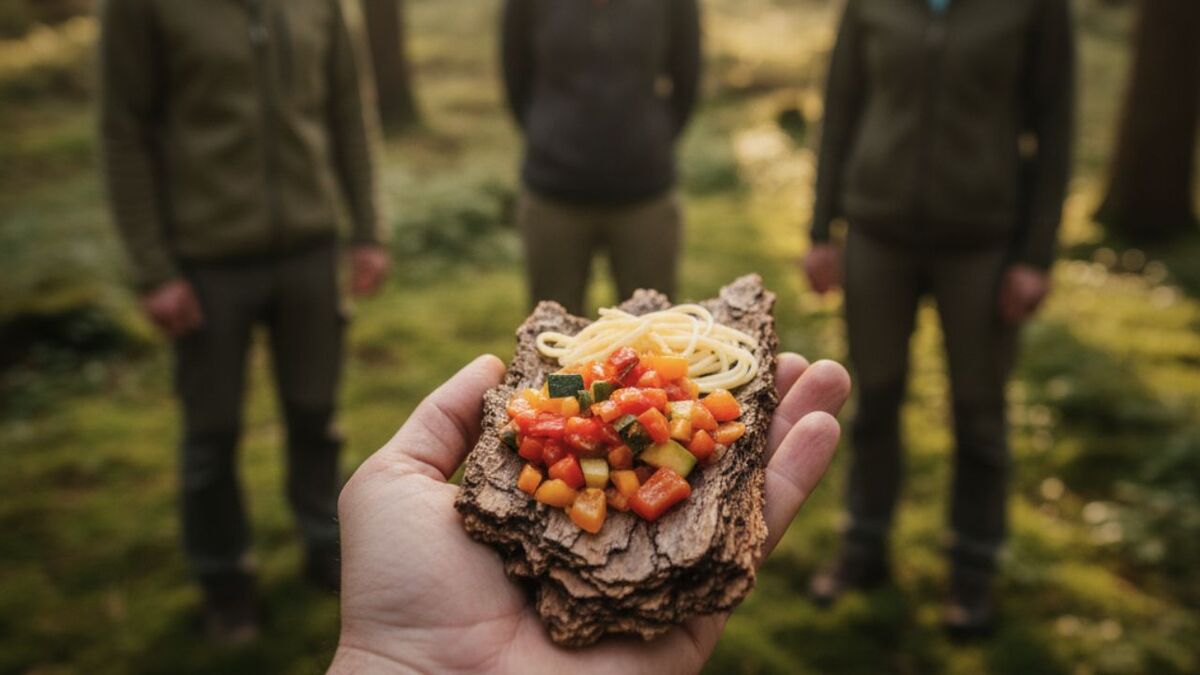
Thanksgiving vs. Prayer: The Difference That Changes Everything
👉 The key facts from this guide
- You will see: Thanksgiving in the way of indigenous peoples connects you deeply with nature and nourishes your life, while Christian prayers often keep you small and separate you from it.
- When giving thanks, you address nature directly (Earth, water, sun) and feel yourself to be part of the whole – very different from praying to a "God up there".
- Through thanksgiving, you acknowledge that you are inseparably connected with nature and stand right in the middle of it, instead of just watching from the outside, as Christian prayer suggests.
- Thanksgiving reminds you of what is already there and strengthens your basic trust, without you having to ask for anything, whereas prayers are associated with requests and the hope of something in return.
- Feel into it: Thanksgiving is earthy, alive, and full of joy, free from feelings of guilt. Christian prayer is characterized by humility and a feeling of one's own imperfection.
- When giving thanks, you give something back unconditionally, as pure appreciation and without expecting anything in return, which differs greatly from giving in the Christian context, which is tied to expectations.
Maybe you've experienced it too.
You're standing in the forest, feeling the surrounding silence, and this impulse rises within you: Gratitude.
For the air you breathe.
For the water that flows.
For the earth beneath your feet.
And then you ask yourself: Is this a prayer now? Or something else?
The answer to that is simple – and at the same time so profound that it can change your entire attitude towards nature.
Because thanksgiving, as practiced by indigenous peoples and our ancestors for millennia, is something fundamentally different from prayer in the Christian sense.
Both know gratitude. Both know rituals.
But only one of these practices will truly enrich your life.
The other keeps you small. Dependent. Separated from what nourishes you.
Let me show you why.
Before we start: A few honest words
A small disclaimer before we start: This article is a declaration of love for nature – and a rather critical reckoning with Christianity.
If you are deeply religious and reading this: Take a deep breath.
I don't want to take away your faith. I don't want to tell you that you are living "wrong" or that your path is invalid.
What I want to show you is simple: There is another way.
- A way where you don't have to be small to be great.
- A way where you are not guilty just because you were born.
- A way where you don't have to hope for mercy, but can feel that you are already part of the whole.
Thanksgiving, as indigenous peoples practice it, is an invitation to see nature again as what it is: not a backdrop, but home.
And yes, in this article I will clearly state what bothers me about the Christian understanding of man and nature. Not out of malice, but out of concern for our planet.
If you are ready to engage with this – then let's look together at what the difference between thanksgiving and prayer really is.
1. Direction and Addressee: To whom is your thanks directed?
Thanksgiving (Indigenous Peoples):
When you give thanks in the way of indigenous peoples, you direct your words to nature itself.
To the earth that carries you.
To the water that nourishes you.
To the plants that give you food.
To the animals, the birds, the trees, the sun, and the moon.
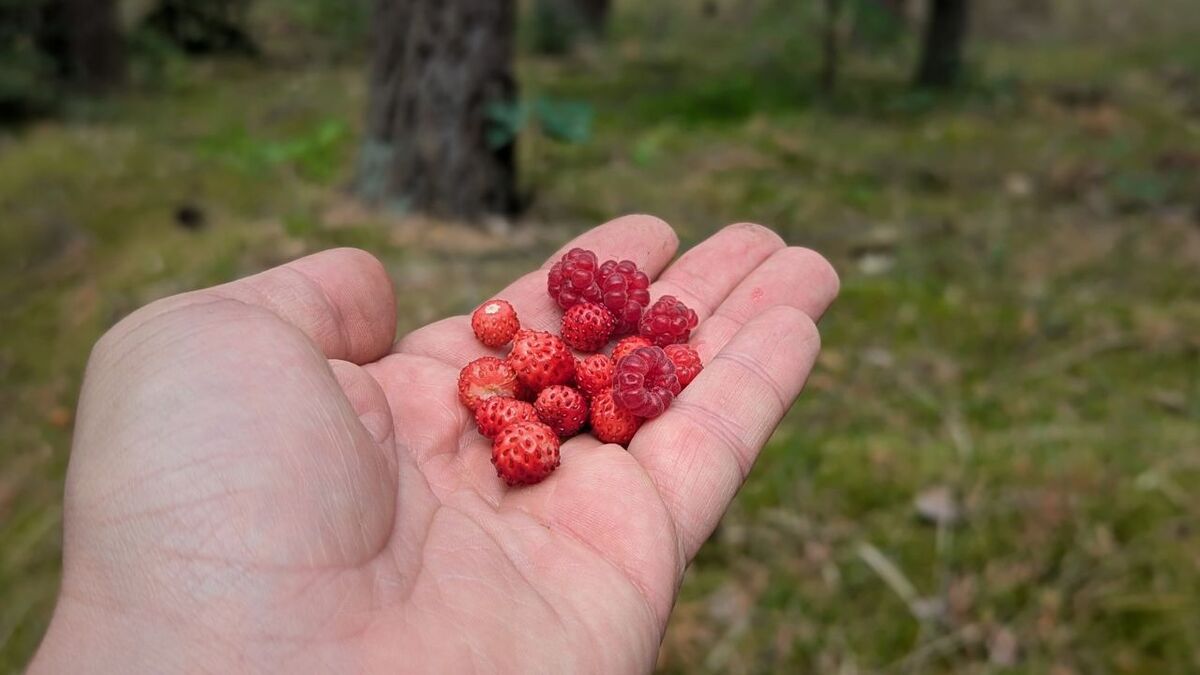
You acknowledge that all these beings – and yes, they are beings – are in relationship with you.
It is a horizontal connection.
You are not above nature.
Not beneath it.
But with it.
Nature is not a place you go to. It is a part of you.
Christian Prayer:
In Christian prayer, on the other hand, you address God. An invisible, unattainable entity somewhere "up there".
The relationship is vertical – and thus hierarchical.
God is above all.
Man is small.
Sinful.
Imperfect.
Nature? Just a backdrop. Just a means to an end. Something given to man to use.
This separation is intentional. It makes you dependent on a power you can never directly experience.
You are not allowed to be on equal footing.
You are supposed to submit.
2. Understanding of Connection: Being a part or remaining excluded?
Thanksgiving:
Thanksgiving reminds you that you are not separate from nature.
You are not an observer looking at creation from the outside.
You are right in the middle of it.
Breathing.
Living.
Connected.
When you give thanks, you acknowledge your belonging. You give thanks to what you are – not to what is outside of you.
Christian Prayer:
In the Christian understanding, you are a creature. God is the Creator.
This separation is drilled into you from a young age.
You are not part of nature – you are above it.
Or at least, that's what you're supposed to believe.
The Bible makes this hierarchy abundantly clear:
"Then God said: Let us make mankind in our image, in our likeness, so that they may rule over the fish in the sea and the birds in the sky, over the livestock and all the wild animals,[a] and over all the creatures that move along the ground." (Genesis 1:26)
Man is supposed to rule. Not live with nature – but rule over it.
In Genesis 1:28, this is stated even more clearly:
"God blessed them and said to them: Be fruitful and increase in number; fill the earth and subdue it. Rule over the fish in the sea and the birds in the sky and over every living creature that moves on the ground."
This attitude has legitimized centuries of environmental destruction (and continues to do so!).
Nature is just decoration for the real drama: your salvation through God.
If the earth is just a backdrop, why should one protect it?
Thanksgiving, on the other hand, makes you part of the whole. Prayer makes you an outsider, hoping for mercy.
3. Purpose and Attitude: Remembering or begging?
Thanksgiving:
Thanksgiving is not about getting something.
It's about acknowledging what is already there.
The fresh air.
The clear water.
The food that grows.

You don't ask.
You don't demand.
You don't beg.
You remember. What nourishes you. What supports you.
This attitude strengthens your basic trust. It directs your attention to the good in the here and now.
And it can be alive. You can sing. Dance. Hum a song of thanks to the water while washing dishes.
There is no fixed form. Only your sincerity.
Christian Prayer:
In prayer, thanks is almost always connected with requests.
"Thank you for this day – and please give us tomorrow our daily bread."
It's a transaction. A begging for mercy.
The Bible says it itself:
"Ask and it will be given to you; seek and you will find; knock and the door will be opened to you." (Matthew 7:7)
You are supposed to ask.
You are supposed to knock.
You are supposed to seek.
Always in the role of the petitioner.
You hope for an answer.
For divine intervention.
For God's benevolence.
But what if nothing happens? Then you didn't pray enough. Didn't give enough. Didn't believe enough.
The blame always lies with you. (It's like a spiritual subscription model where you never know if you've paid in enough.)
Prayer makes you a petitioner. Thanksgiving makes you an equal part of creation. It acknowledges what is already there.
Read also
The Core Routines of Wilderness Pedagogy: Your Path to Deep Nature Connection – Wilderness Pedagogy Core Routines explained: From sit spot to giving thanks. Learn how these exercises can transform your nature awareness. For beginners!
4. Emotional Quality: Alive or kept small?
Thanksgiving:
Thanksgiving is earthy. Alive. Physically palpable.
You sing, you dance, you feel the earth beneath your feet.
There is no guilt.
No unworthiness.
Only joy.
Aliveness.
Appreciation of the everyday.
You express gratitude with your whole being.
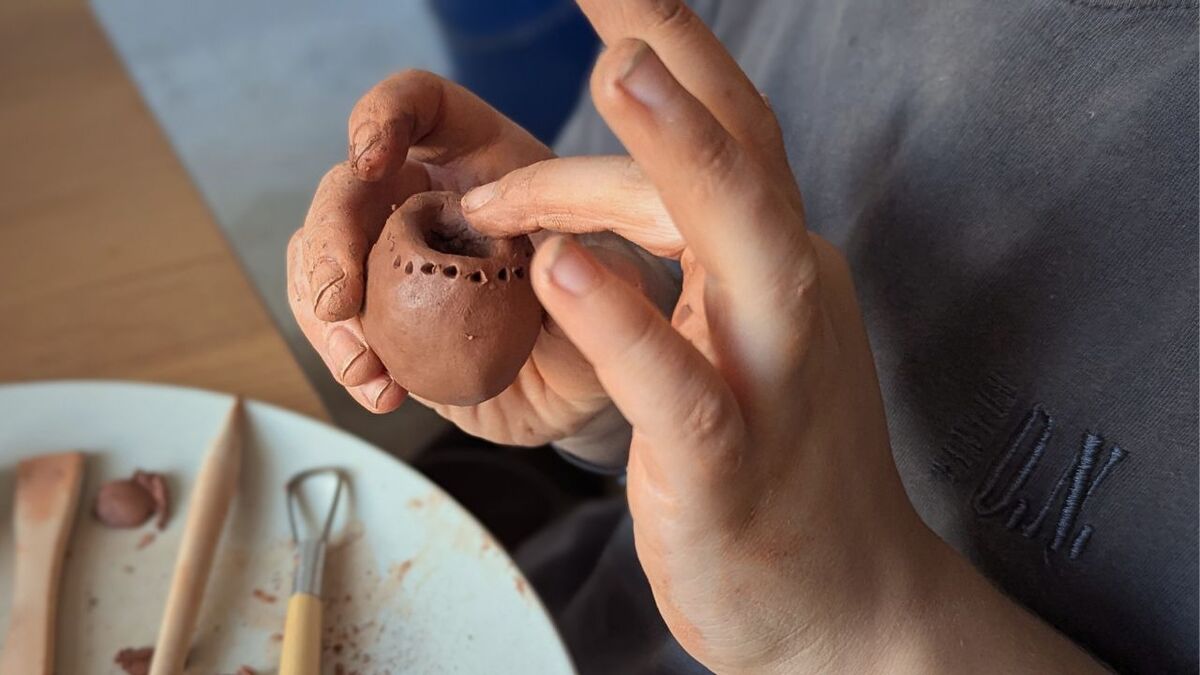
Christian Prayer:
Prayer is often reverent.
Humble. Submissive.
And often marked by guilt.
By penance. By shame.
The focus is on God's grace – and on your own imperfection.
You are a sinner. God is holy.
The Bible leaves no doubt about it:
"For the wages of sin is death; but the gift of God is eternal life in Christ Jesus our Lord." (Romans 6:23)
You are guilty from birth.
You deserve death.
Only through God's grace can you be saved.
- What a start to life, right? "Welcome to Earth! By the way, you're guilty. Have fun!"
- Thanksgiving, on the other hand, says: "Welcome! You belong. It's good to have you here."
This distance is intentional. It keeps you small.
You are not allowed to become too self-confident.
Not too alive. Not too free.
Prayer constantly reminds you that you are not enough.
Thanksgiving reminds you that you are enough – because you are part of the whole.
It knows no original sin. No guilt. Only connection.
5. Practice in Everyday Life: Freedom or duty?
Thanksgiving:
You can give thanks at any time.
While washing dishes
In the shower.
While making a fire.
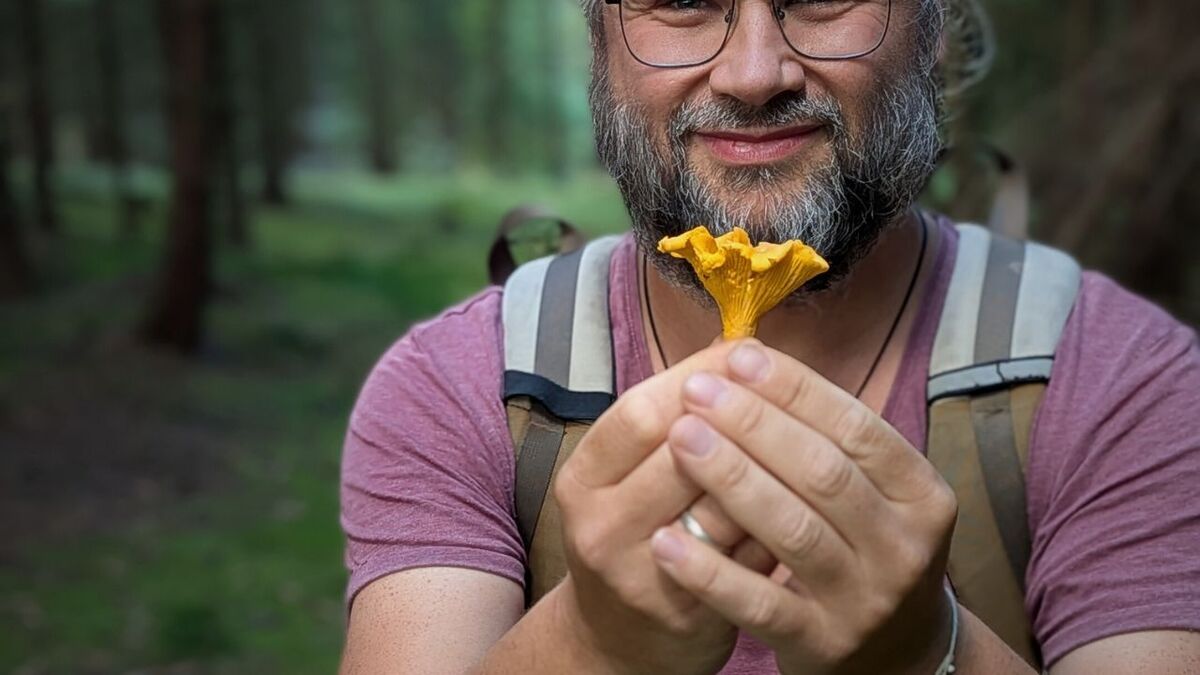
No fixed form. No specific place. No authority figure to judge you.
Thanksgiving is integrated into your everyday life. It is not bound to times or places.
It is allowed to change. To stay alive. To be playful.
Christian Prayer:
Prayer is often tied to specific times.
In the morning. In the evening. Before meals. On Sundays in church.
It becomes a duty. A routine. A form of control.
Whoever doesn't pray is worth less.
Less devout.
Less worthy of salvation.
Prayer can become ritualized. Formulaic. Lifeless.
It provides structure – but this structure quickly becomes a cage.
6. Giving and Expectation: Gift or blackmail?
Thanksgiving (Indigenous Peoples):
When you give thanks in the way of indigenous peoples, you give something back.
A hair you pull out. A breadcrumb. A piece of the prepared food placed on bark and given to the animals.
(And no, this isn't a sign that you're too stingy. It's a sign that you've understood it's not about the value of the gift, but the gesture.)
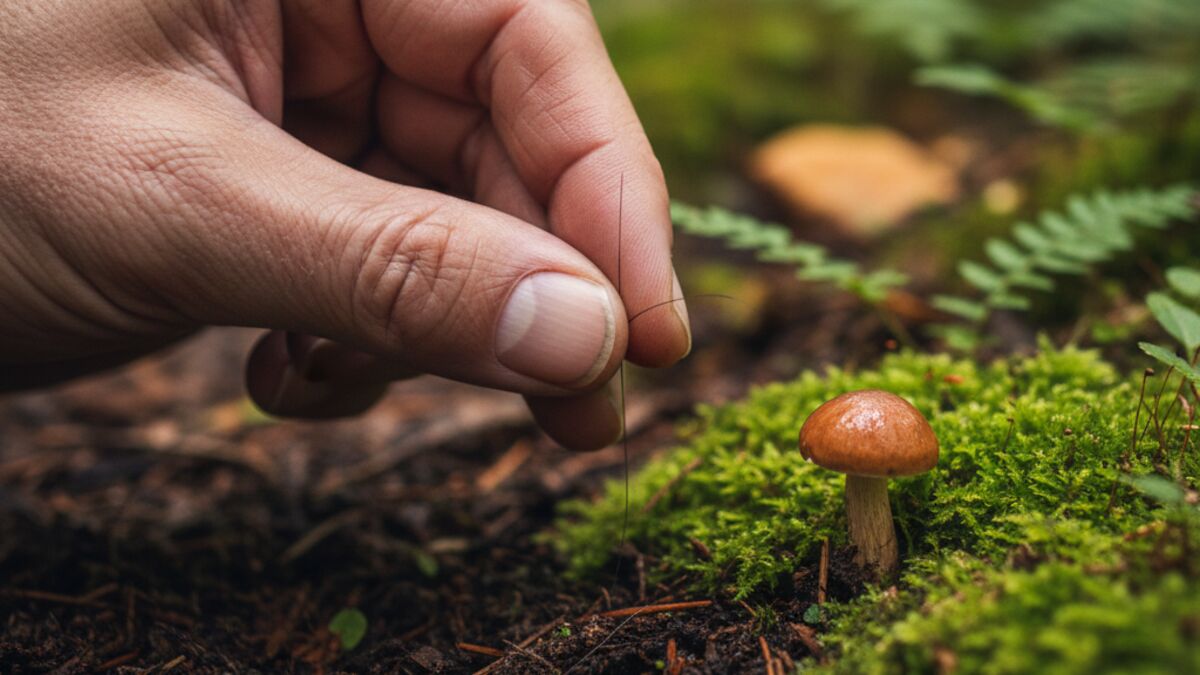
This return gift is an expression of your appreciation. Not payment.
You expect nothing in return.
No transaction.
No negotiation.
You simply say "Thank you" – without conditions, without hope of reciprocation.
The gesture is pure.
A gift from the heart.
Christian Prayer/Giving:
In the Christian context, one also gives something: money (collection, church tax), time, confession, good deeds.
But this giving is almost always connected with the expectation of something in return:
It's a bit like spiritual insurance: "If I pay now, I'll be covered later (which is uncertain anyway)."
Blessings. Forgiveness of sins.
Salvation. Entry into the kingdom of heaven.
Giving becomes a moral duty. A form of blackmail.
"If you don't give, you won't be saved."
"If you don't confess, you won't go to heaven."
A perfidious dependency relationship is created: I give so that I may receive.
And if I don't receive?
Then I didn't give enough.
Didn't believe enough.
Didn't repent enough.
The blame always lies with you.
Thanksgiving knows no guilt. No blackmail. No fear. It is free.
The Core of the Difference
In thanksgiving, in the sense of indigenous peoples, you give unconditionally.
You give because you have received – not in order to receive.
In the Christian context, giving is a transaction.
Insurance against hell.
An investment in salvation.
Thanksgiving knows no accounting.
No fear.
No control.
It is free.
Alive.
A gift without demands.
Prayer, on the other hand, keeps you in dependency.
It makes you small.
It separates you from nature and from yourself.
(And if you look closer, you'll see another fundamental difference: Nature gives unconditionally and then you give thanks – in Christianity, it's the opposite: First you must give, then you receive.)
Maybe you're thinking now: "Wow, Martin, you're going pretty hard on the church."
True. But I believe it's time we get honest with ourselves.
Nature needs no mediators.
No priests.
No golden altars.
It is already here.
Always.
Everywhere.
You just have to go out and say "Hello," and it will answer.
Conclusion: Only one of these practices will truly nourish you
The thanksgiving of indigenous peoples is a practice of connection.
It reminds you that you are not separate from nature, but a living part of it.
It's not about asking for something from the outside, but about acknowledging what is already flowing.
Christian prayer, on the other hand, is a practice of control.
It keeps you small.
Dependent.
Guilty.
It separates you from nature and from your own power.
Thanksgiving invites you to feel yourself as part of the great whole again.
Not above nature.
Not beneath it.
But with it.
And that is exactly what will change your life.
Would you like to learn more about thanksgiving as a core routine of wilderness pedagogy? Then read on here:
How Thanksgiving Makes You More Resilient [+Exercises] (Core Routine of Wilderness Pedagogy)


Author of the guide
Martin Gebhardt
Hey, I'm Martin. On my blog, you will learn the basics and numerous details about living in the wild. I think survival, bushcraft and the good life in nature are the keys to happiness. Find me here on Instagram or on YouTube. You can find more about my mission on the About Me page.
Was this guide helpful?
12 people found this guide helpful.
5.00 out of 5 points (12 Ratings)
Comments (0)
This post may contain affiliate links. So if you click on the links and make a purchase, I will receive a small commission at no additional cost to you. Click here, to learn more about it.


